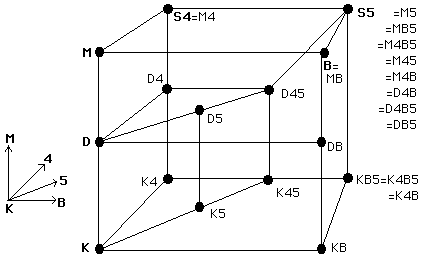Soams gives an objection to himself starting at the end of page 22.
Consider an agent A, the actual world @, and two worlds W and W*.
Suppose further that A has certain beliefs at W about W* (that is to say, were W instantiated then A would have beliefs about W*). So, W must have some defining propositions that result in belief ascriptions to A. The problem gets tricky when we try and apply knowledge ascriptions. I'll give the important sentences right here (with our modifications).
12) p is true at w*
13) A believes truely that p is true at w*
15) if (conditions for A's knowledge of S) then A knows that S
14) A knows that p is true at w*
The worry is that there may be no necessary&sufficient conditions for knowledge. If that's right, then if A is able to know S at W, then "A knows S" must be a defining proposition of W. If it were not, "A knows S" would be derivable from the defining propositions of W, and that would require conditions for knowledge. But, if "A knows S" must be a defining proposition, there are problems. Consider:
8c) A knows that: ~Saul philosophizes & it is true at @ that Saul philosophizes
If (8c) is true at W, we can infer (8b)
8b) ~ Saul philosophizes & actually Saul philosophizes
But we know apriori the truth of (8a)
8a) Saul philosophizes iff actually Saul philosophizes
So, we can know a-priori that W isn't instantiated. This is bad. Note that Soames's original strategy won't work, since if (8c) is a defining proposition of W we can take it by the indexical mode of presentation if we like. For simplicity, consider W a tiny world with only A and non-philosophical Saul, and all A does is know that (8c), and Saul does nothing.
Here's a reminder of EP1 and EP2.
EP1: A world state w is epistemically possible iff w is a way the world can coherently be conceived to be, which it cannot be known apriori not to be
EP2: A world-state w is epistemically possible iff w is a way the world can coherently be conceived to be, and one cannot know apriori that w is not a way the world could be (or have been)
The objection depends upon two principles:
1) ~E sufficient and necessary conditions for knowledge
2) EP1
If we adopt EP2 then W is still epistemically possible.
Wednesday, August 15, 2007
Subscribe to:
Post Comments (Atom)

No comments:
Post a Comment